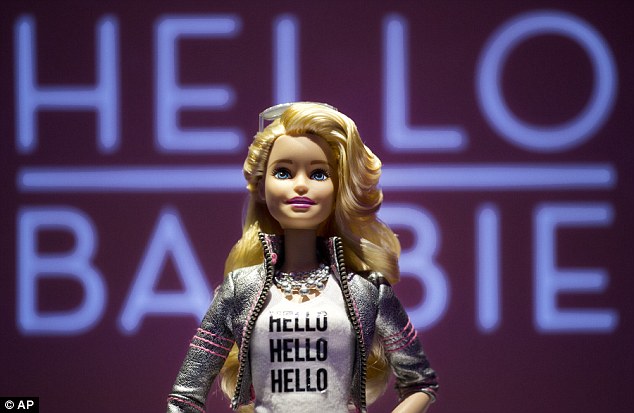Nearly every little girl growing up finds herself playing with Barbie dolls. Some have one, and some have hundreds. Either way, these are usually some of the most prized possessions that these young women have. It is for this reason that Mattel’s newly proposed Barbie should give all of us pause.
This new high-tech “Hello Barbie” will listen to children, record their words, send them over the internet for processing, and talk back to the children. It will then e-mail parents highlights of the children’s conversations with their toy.
The recorded audio of the children’s voice is kept on the computers of the toy’s developer, ToyTalk. The company has developed a privacy policy which permits the company to record any and all interactions through the doll. It has not yet been announced how long these recordings will remain in these online vaults.
Most worrisome about this new product is that, as seen many times in the past with social networking sites, the government has had no problem demanding that private companies turn over the personal information of its consumers. Through either coercion or willing consent, most of the major entities which harbor our most intimate details have been overrun by the state.
This new Barbie doll would likely face the same problem: if the government had enough reason to investigate any one person’s recorded messages, it would find the means to do so. Whether this is ToyTalk’s intention is a moot point, and how much they may fight such actions doesn’t much matter either. When the government knows of information that could help lead it to a potential “terrorist threat,” it will let nothing (including civil liberties) get in its way.
Furthermore, this toy may mark an unwanted shift in American culture. As the lines between private and public information blur, the conceptualization of civil liberties will also erode. Just like in 1984, “thought crimes” will become closer to reality. It is difficult to imagine that children could grow up in a society where the police state is the norm and only those who have something to hide should be defensive, but every time that we welcome more intrusion into our personal lives, this may more quickly become the case.
No matter the benevolent intentions, surveillance programs like those orchestrated by the NSA do nothing but chip away at our freedoms. As Americans, we should never feel that our government is watching our every move. However, we find ourselves daily moving nearer to such a realization. Because of the discretion which we have given to our rulers in the name of security, we must now grasp at the final shreds of liberty which we still maintain.
In the name of anti-terrorism, government has taken away so much that we once took for granted. The Bill of Rights, once proud, now seems to be more of a kind suggestion than a mandate. In order to fight back against such encroachments upon our liberty, we have an obligation to future generations to demand that privacy and personal space be maintained, even when we fear that a present situation begs otherwise.
If we hold on tightly to the culture of liberty and refuse to give it up at any cost, we can instill our society with values which are worth preserving; those principles which were earned at the time of the American Revolution. While subtle advances of tyranny in popular culture may seem insignificant, we must stand up and call them out for what they are. Broad ideologies which promote liberty are sometimes difficult to elaborate upon, but more topical and visible examples present unique opportunities for us to place our ideas on full display. Perhaps a good place to start would be with Barbie.




